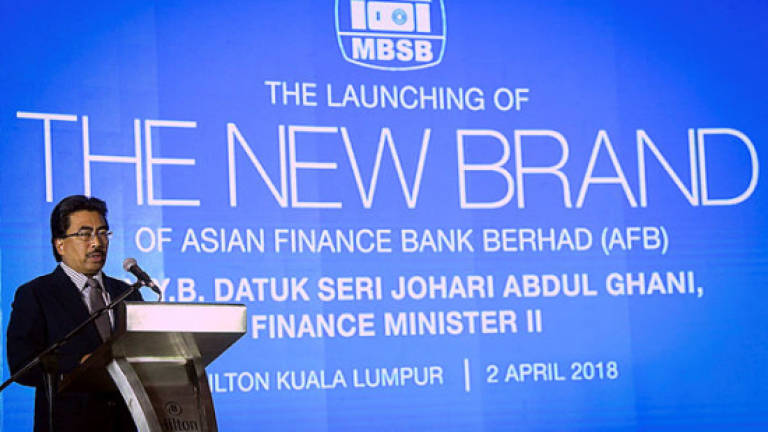Minimum wage rise must be gradual to avoid hurting SMEs: Johari

KUALA LUMPUR: Second Finance Minister Datuk Seri Johari Abdul Ghani supports the idea of having a minimum wage of RM2,700 as outlined by the recent Bank Negara Malaysia (BNM) report, but insists that the increment must be gradual so as not to hurt the small and medium enterprises (SMEs).
He said SMEs formed the backbone of the country's economy and contributed 65%, or about 6.8 million jobs.
"If you want to increase the minimum wage, you must ensure that they (SMEs) are able to absorb. If they can't, they will close down their businesses and we lose employment," he told reporters after unveiling the new branding of Asian Finance Bank (AFB), which is now known as MBSB Bank, here today.
In its 2017 Annual Report, the central bank said based on a study in 2016, the living wage in Kuala Lumpur ranged from RM2,700 a month for an individual, to RM6,500 monthly for a couple with two children.
Currently, the minimum wage in the country is RM1,200 for the public sector and RM1,000 for the private sector.
Johari said for the minimum wage to grow, the country's economy must continue to grow.
"Today, our economy's size is about RM1.3 trillion. So maybe in the next five or six years if we continue to grow our economy, the companies will be able to absorb (the higher wage); then we can increase our minimum wage," he said.
Johari said another way to increase minimum wage was to reduce dependency on foreign workers and focus on automation.
"If we want to ensure this country can afford the minimum wage that Bank Negara has indicated, we need to give more attention into automating all our businesses.
"You can't rely any more on foreign workers, and we have to reduce the number of foreign workers in all industries that rely on them," he added.
Earlier, in his speech, Johari said, as a result of continuous and coordinated efforts by the government, Malaysia could now take pride in the depth of the country's financial market.
He noted that Malaysia's financial system as of January this year stood at RM5.83 trillion, or 45% of the country's gross domestic product.
Banking assets amounted to RM2.56 trillion, or 44%, of the financial system, with Islamic banking making up 25%, or RM640 billion, of total banking assets.
"The Islamic capital market also continues to thrive with a total size of RM1.9 trillion in 2017, and Malaysia maintains its leading position with a market share of 38% in global sukuk issuances," he said.
Johari said stock market capitalisation stood at RM1.96 trillion, or 33.6%, of the financial system, and bond market outstanding at RM1.3 trillion, or 22.4%, of the financial system.
Following its acquisition by Malaysia Building Society Bhd (MBSB), AFB is now known as MBSB Bank and has become the second largest full-fledged Islamic bank in the country with assets of RM43.7 billion.
However, MBSB will remain as the listed entity on Bursa Malaysia despite the new corporate exercise. — Bernama